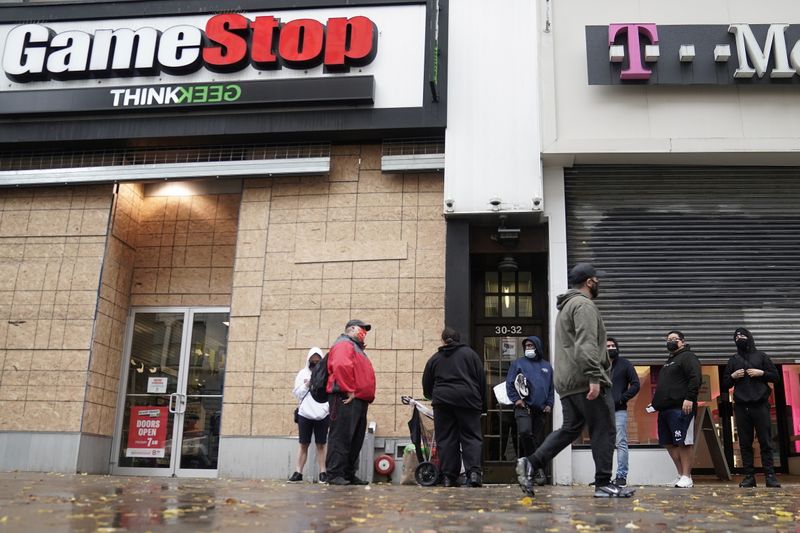By Geoffrey Smith
Investing.com -- This is a historic moment in stock markets. As such, historians will recognize what is happening right now better than those trained in the math-based disciplines that are more normally required for success in financial markets.
They will not be enjoying it much.
The victories chalked up by exuberant retail traders against short-selling hedge funds are recognizable from any number of revolts and revolutions through the ages. All of them have their signature moment when the downtrodden and disadvantaged suddenly become aware of the power they have when they come together and organize.
This week's winners in GameStop (NYSE:GME), AMC Entertainment (NYSE:AMC) were also seen storming the Bastille in 1789, dumping tea in Boston harbor in 1773 and chasing European monarchs from their palaces in 1848.
This is a social and a cultural moment as much as a financial one. Take this example, one of countless such, from the Twitter account WallStreetBets Intern: “A reminder to everyone holding. #WSB $GME $AMC $BB Not a single Wall Street executive got punished for the 2008 financial crash. F*** em.”
Or this one from another Twitter account with the handle AOC’s Stonk Daddy (the revolt is nothing if not bipartisan):
“I’ve never seen a better opportunity to f*** over the people I hate so passionately Every protest, every direct action I’ve been to. Pales in comparison.”
It’s very obviously a desire for revenge above all else. Grievances can be specific, such as those from those who have been on the wrong end of sharp practises from short-sellers, high-frequency traders, or just Main Street brokerages. Or they can be general, directed against the Wall Street establishment (which, unsurprisingly, includes a Securities and Exchanges Commission that is only just waking up to the mob outside its doors).
“EAT. THE. RICH.” “F*** the Suits” and so on, and so on. This is a moment fueled by anger.
We know from history what happens next. More often than not, the mob, intoxicated by its own success, goes on to commit excesses that stiffen the resolve of its opponents, who are almost always better resourced and - when the chips are down - just as desperate. The ruling caste regains its nerve, the solidarity of the rebels cracks under pressure, and the status quo is restored by a vicious repression. The narrative is the same from antiquity (the Jewish Revolt of 70 AD) through the middle ages (Paris 1358, London 1389) through the age of Empire (Scotland 1746, the Volga in 1775, Prussia 1849, India 1857) and to the modern day. The list is literally endless.
Even the more successful uprisings generally turn sour as the victors turn against each other. The unity of the mob - the source of its strength - is strictly time-limited. Any answer to the question “when do I sell GME/AMC/BB?” will produce losers, who will turn their rage away from the establishment to the sell-outs and turncoats.
None of this is to denigrate the origins and the realities behind the grievances driving this moment. It is not our job to gloss over the inequalities created by the last boom and bust cycle, or the injustice implicit in today’s market structure. It is just to say that moments like this generally end with heads on pikestaffs, or bodies strapped to cannon muzzles. Make sure that yours isn’t one of them.
